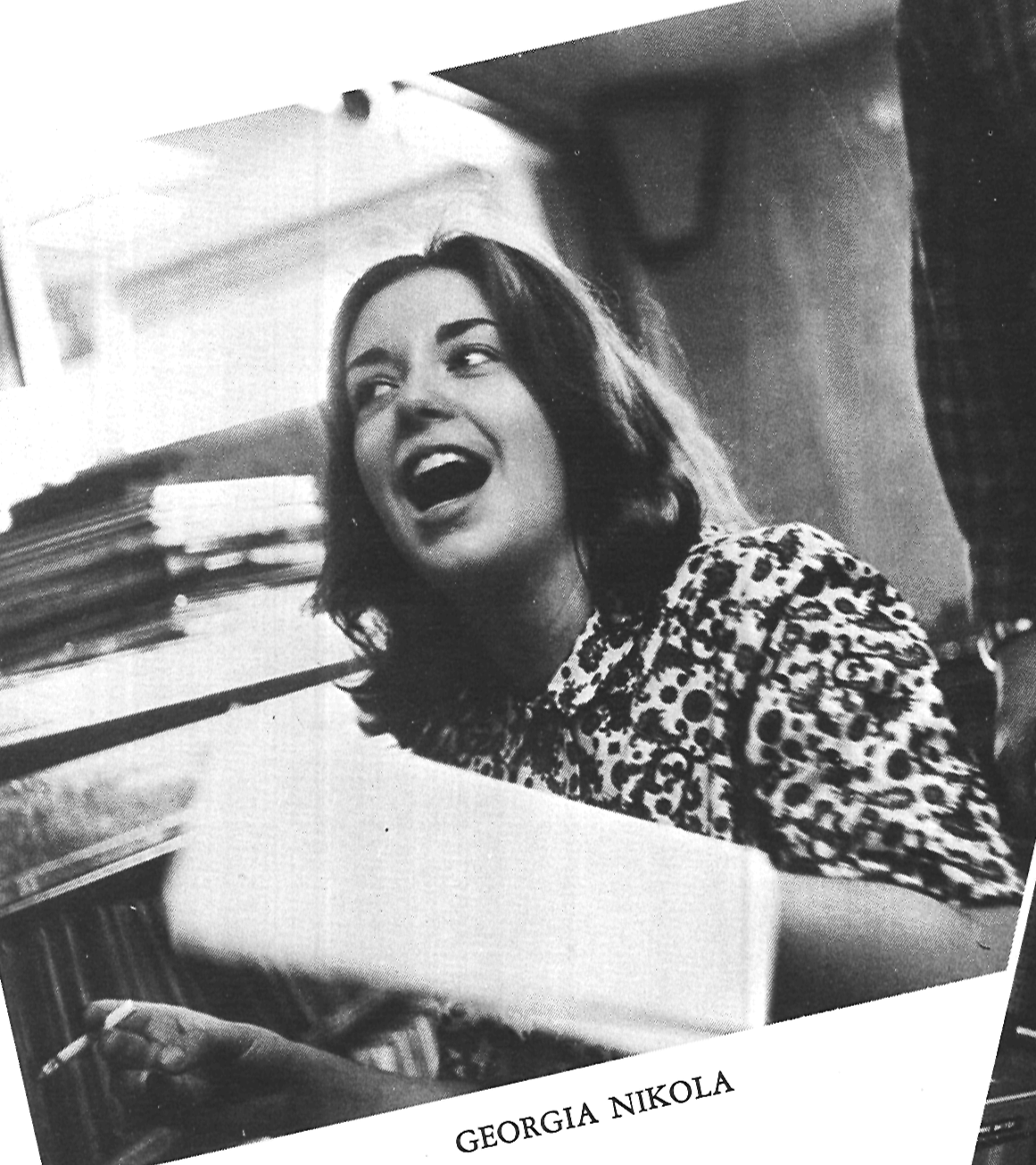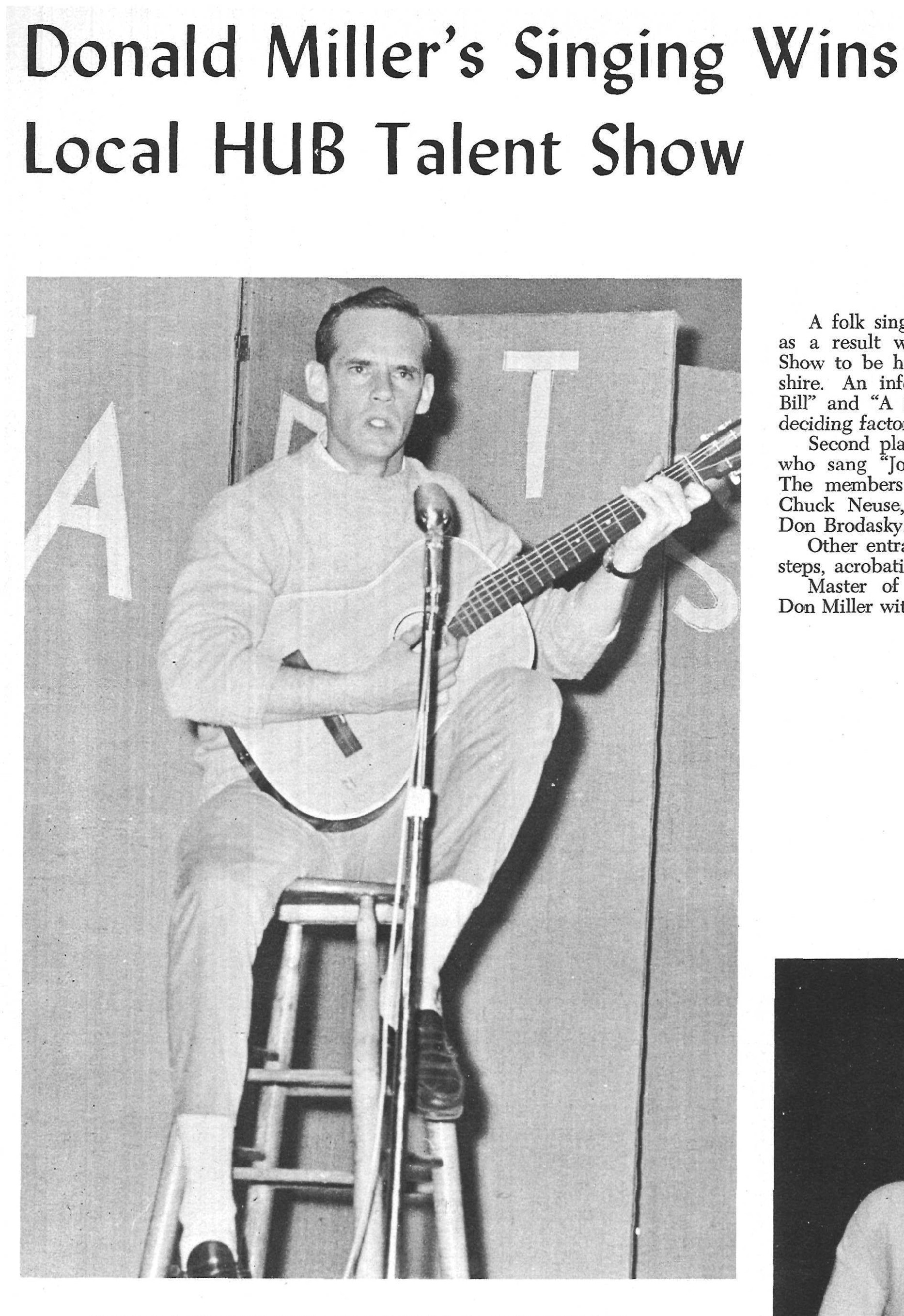Written by Lily Goldblatt and Jonathan Kopeliovich, edited by Susan Forbes Hansen
Folk holds an unusual place at WHUS. For the most part, the genre-mainstays here, like polka, bluegrass, and jazz, have transformed to changed focus as DJs have replaced previous ones. But long-time folk-host Susan Forbes Hansen has tried to balance the old with the new, the traditional with traditionally-inspired and just plain inspired, to present a consistent but representational mix of possibilities, for 45 years and counting on the Sunday Night Folk Festival (Sundays from 7 to 10 PM).
Folk music is a mix of storytelling, complaining/protesting, and describing. Is it as concerned with style or technique or musical rules as other genres? Possibly. Or not.
Certainly much of the music of protest and social change fits into the genre with subjects like women’s rights to class struggles to the rights of farm worker to this morning’s headlines. Folk icon artist Woody Guthrie summed up its spirit with statement.
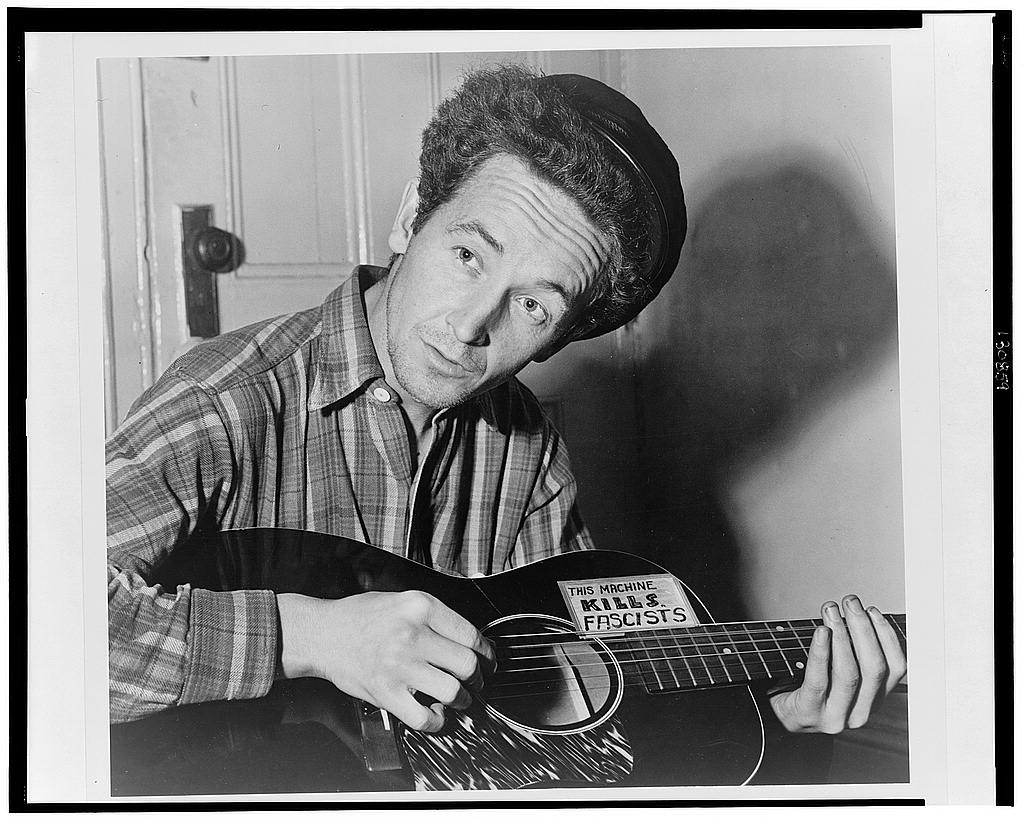
This machine kills fascists.
Woody Guthrie
This topicality was part of what drew Susan Forbes Hansen to the folk genre.
“One of the great things about folk music is that it is very topical. So, if something happens on the news, and you can think of a good song or six good songs that go with that, then you play them,” Susan said in a phone interview.
Folk at WHUS before Susan:
The earliest presence of folk at the station goes back to 1960. Don Miller, a student who broadcast classical music and presented news, played folk music on Wednesday nights on his show Folk Songs Etcetera. Miller is also a amateur folk singer, having won the 1960 UConn Talent Show. In 1963, DJ Georgia Nikola started hosting Finest in Folk. Nikola also had a Broadway program (Broadway to the Beat) and Concert in the Afternoon.
For a brief period in spring 1963, Country Cousin’s host Mary Twining sang and play live folk music for each show. From then on to 1979, folk doesn’t really have a stable home at WHUS. It may get air time one year or disappear for another. In 1969, there were two folk shows on the program schedule, one by DJ Karen and another with two alternating hosts, Ed Bennett, and Ralph.
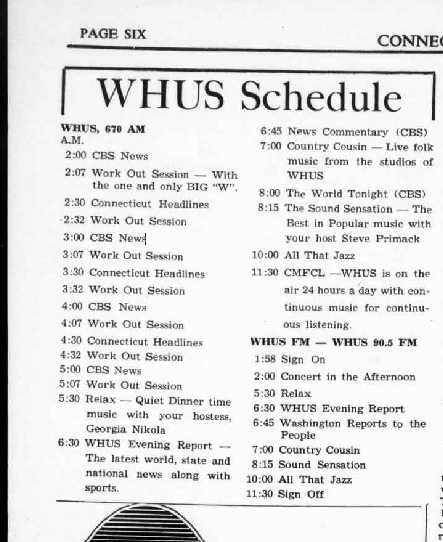
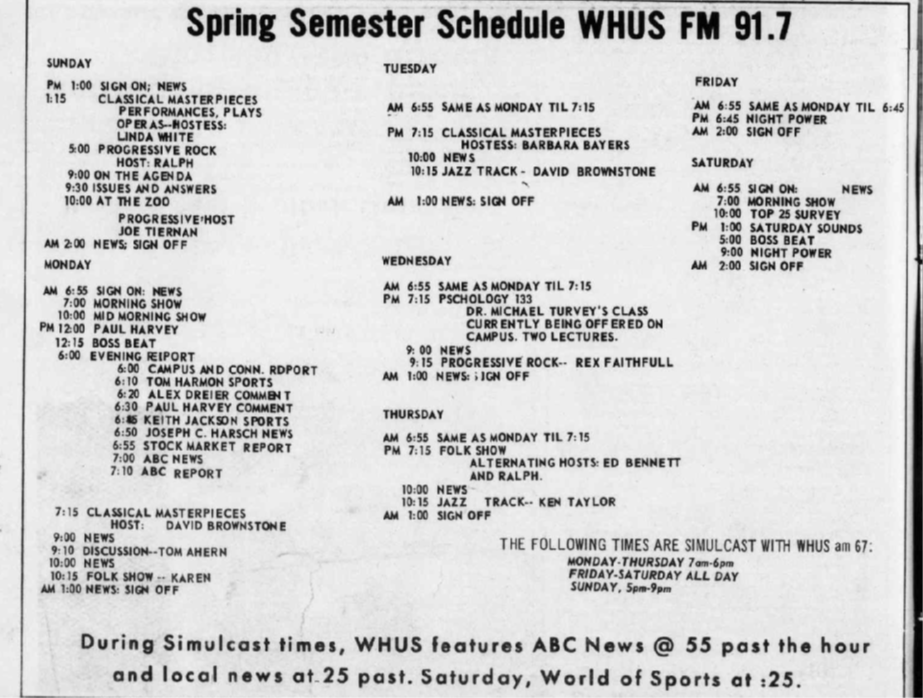
In 1978, student Andy Rude started Mostly Folk, a Saturday show playing folk and occasional bluegrass. He split his time between Mostly Folk, Real Music, and his position as Public Affairs Director.
In February 1979, while Susan Hansen was teaching at Prince Technical High School, she tuned into WHUS’s folk show and learned of the station’s training classes, which had recently become available to non-students. Inspired, she applied and subsequently received training that spring. She initially contributed to the public affairs program “Panorama” and also covered various music shows, spanning genres from rock to classical to jazz.
Andy graduates in the spring and Susan applies for the Sunday slot.
August 1979: The Sunday Night Folk Festival is officially launched! It runs on Sunday from 7 to 11 p.m.

What boosted the popularity of the show to the point of earning $15,000 for Radiothon alone within a few years of its premiere was Susan’s familiarity with the folk scene beforehand. Hansen said that she had been attending folk festivals in the Northeast because musician-friends performed at them. In time, she became aware of the presence of area folk venues and started attending the venues’ concerts. They’d keep her informed of good acts nearby and this local knowledge helped build her initial repertoire of music.
One of these was Hartford’s The Sounding Board, a folk organization that had been running its Connecticut Family Folk Festival since 1975. Susan is now on the Sounding Board’s board of directors. She emceed the venue’s annual folk festival for several years, and produced the final one in 1999. She also emceed the Hartland Folk Festival, a benefit for the Hartland Volunteer Fire Department and produced by the then-local performer/fireman Bruce Pratt.
These helped forge connections with local and national acts and work with performers and record labels. Through the Sunday Night Folk Festival, Susan offers her loyal listeners a wide variety of folk music, both new and old, as well as interviews and live performances every Sunday evening.
Over the years, the Sunday Night Folk Festival has engineered amped-up specials for big occasions like anniversaries and birthdays. To celebrate 10 years, 22 bands got together for a four-hour set, nine minutes each, at Von der Mehden Hall.
Fun fact: The 10th Anniversary Show was actually WHUS’s first remote stereo broadcast, when it started at 7 p.m. on October 15, 1989.
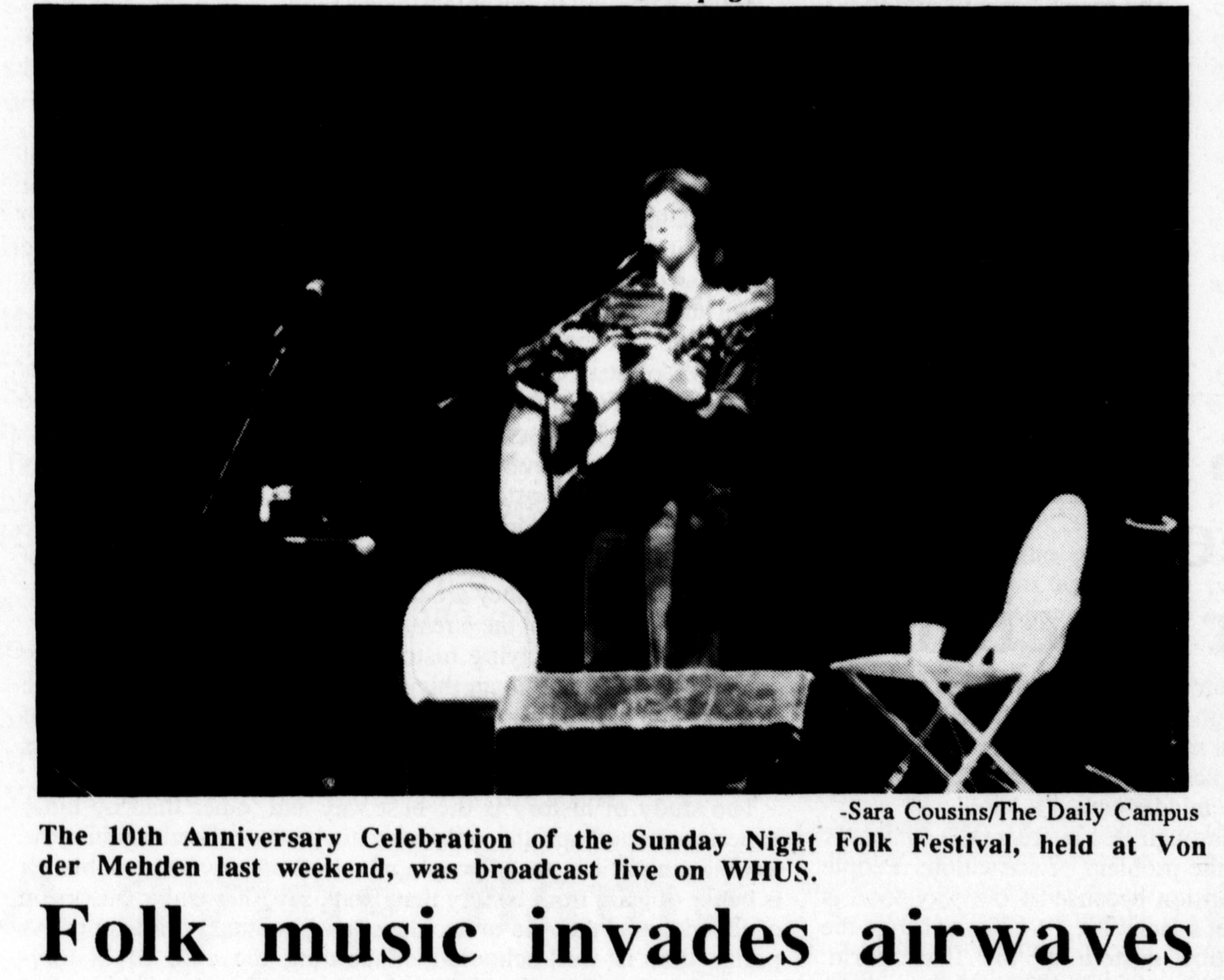
The 15th, 20th, and 25th anniversary concerts were held at Cheney Hall in Manchester. The 25th anniversary was co-hosted with a WWUH folk DJ, who was also having his 20th anniversary.
For Susan’s birthday in 2008, she invited Amy Gallatin, a birthday-twin, to bring her band in, and also invited four other acts to help celebrate. The show was almost entirely live other than the playing of the closing theme.
“When musicians visit, they’re also on the air as they’re singing a song. What I usually do is talk a little bit, they sing another song and we talk a little more, we play something from their CD, we talk a little more. It goes like that,” Susan said.
Over the years, Susan has conducted many memorable interviews. For example, she got to sit down with the powerful performer and civil rights activist Odetta at the singer’s New York apartment. Others included Arlo Guthrie’s daughter Sara Lee, Si Kahn, Sally Rogers, Howie Bursen, Anaïs Mitchell, Jay Ungar, and Ken Hicks.
But the big names don’t outshine the small ones. She talked about the enthusiasm UConn roots band Poor Old Shine (now called Parsonfield) showed when they got to perform on her broadcast.
“They did their first show ever on my show on a Sunday night. I mean, here’s some of the college kids starting a band getting together excited as heck. I mean, their enthusiasm was just bouncing off the walls, and they were terrific. And then they came back and suddenly made a CD contract with a music company up in Massachusetts,” Susan said.
They later came back to do a Studio Session with us in 2014.
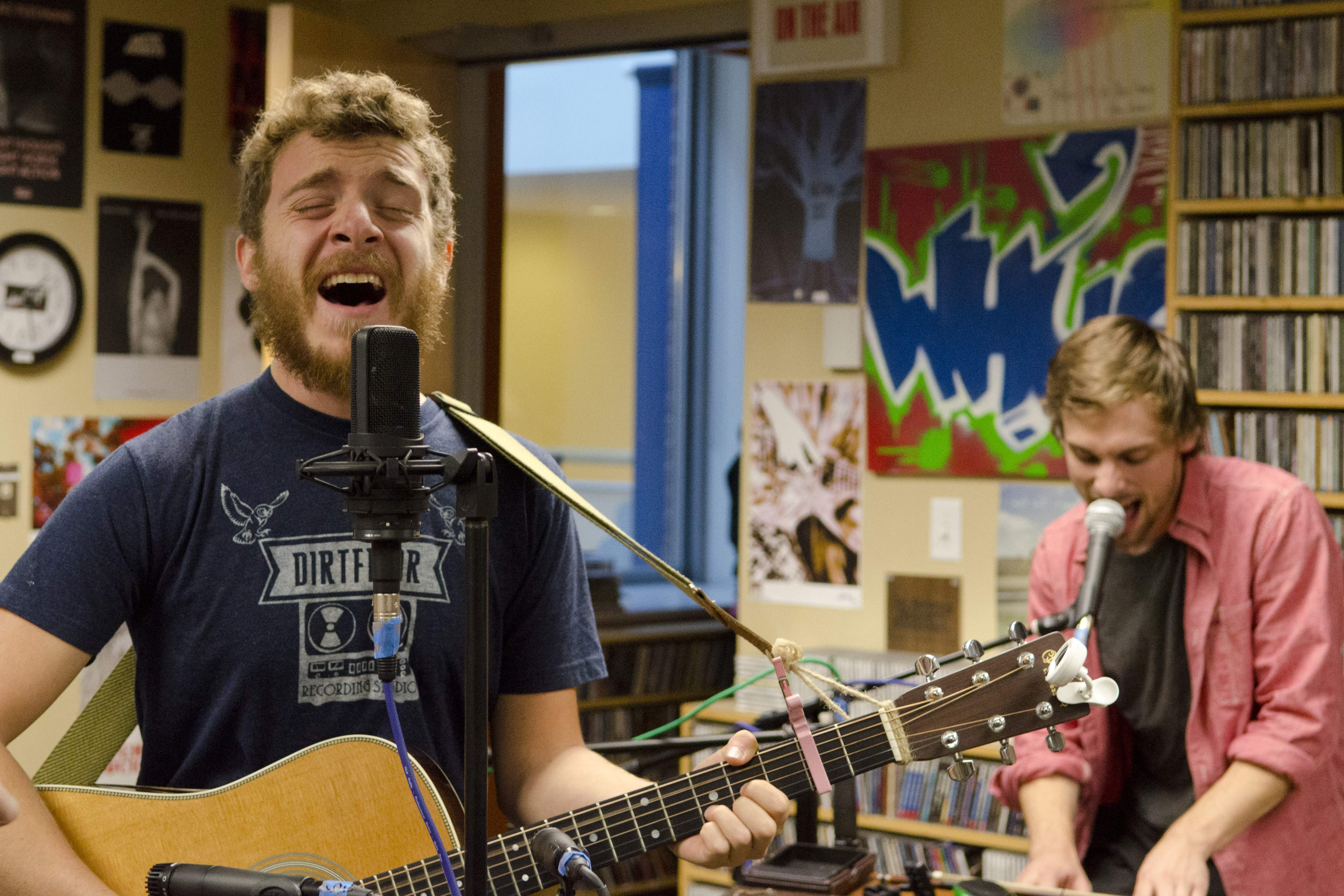
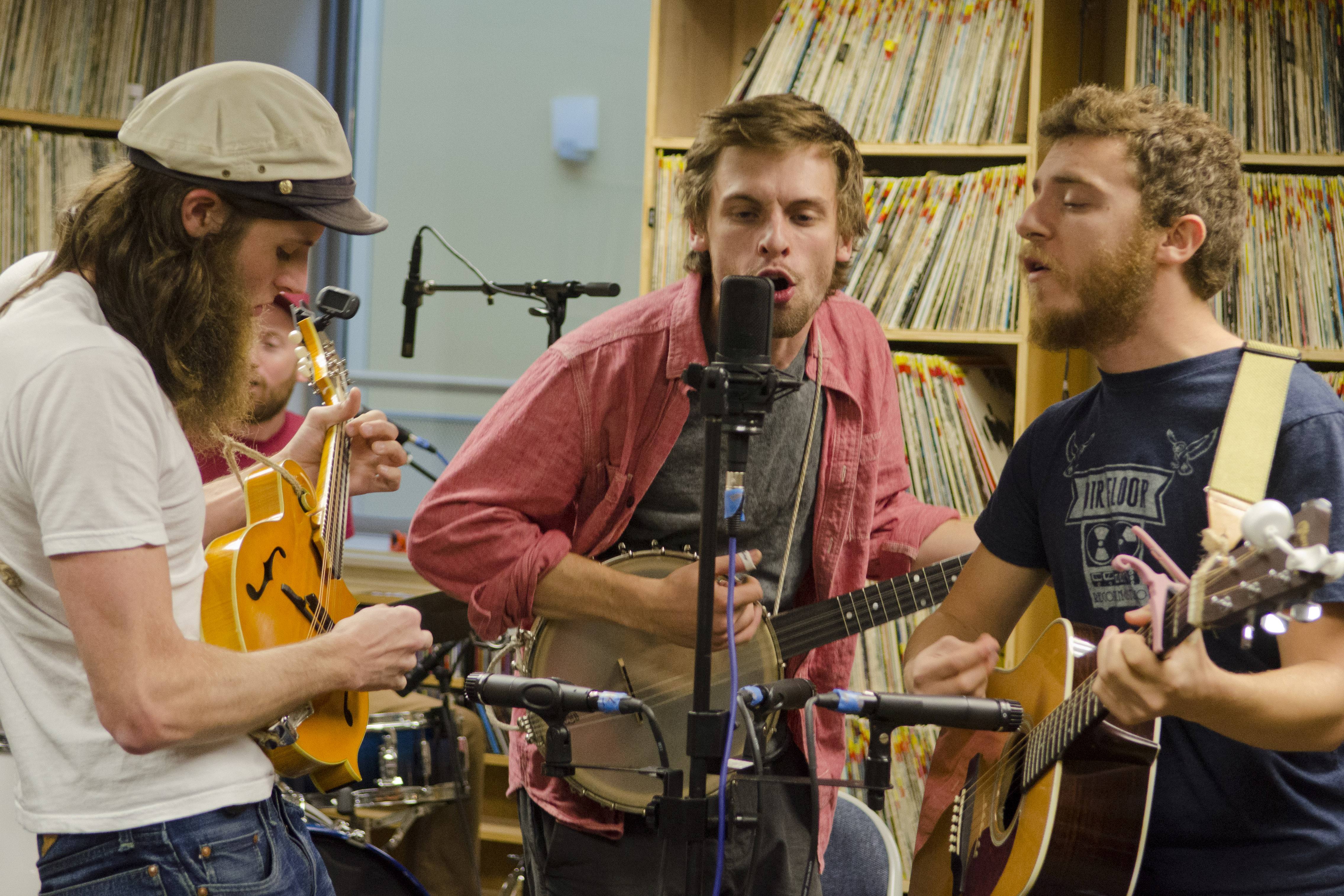
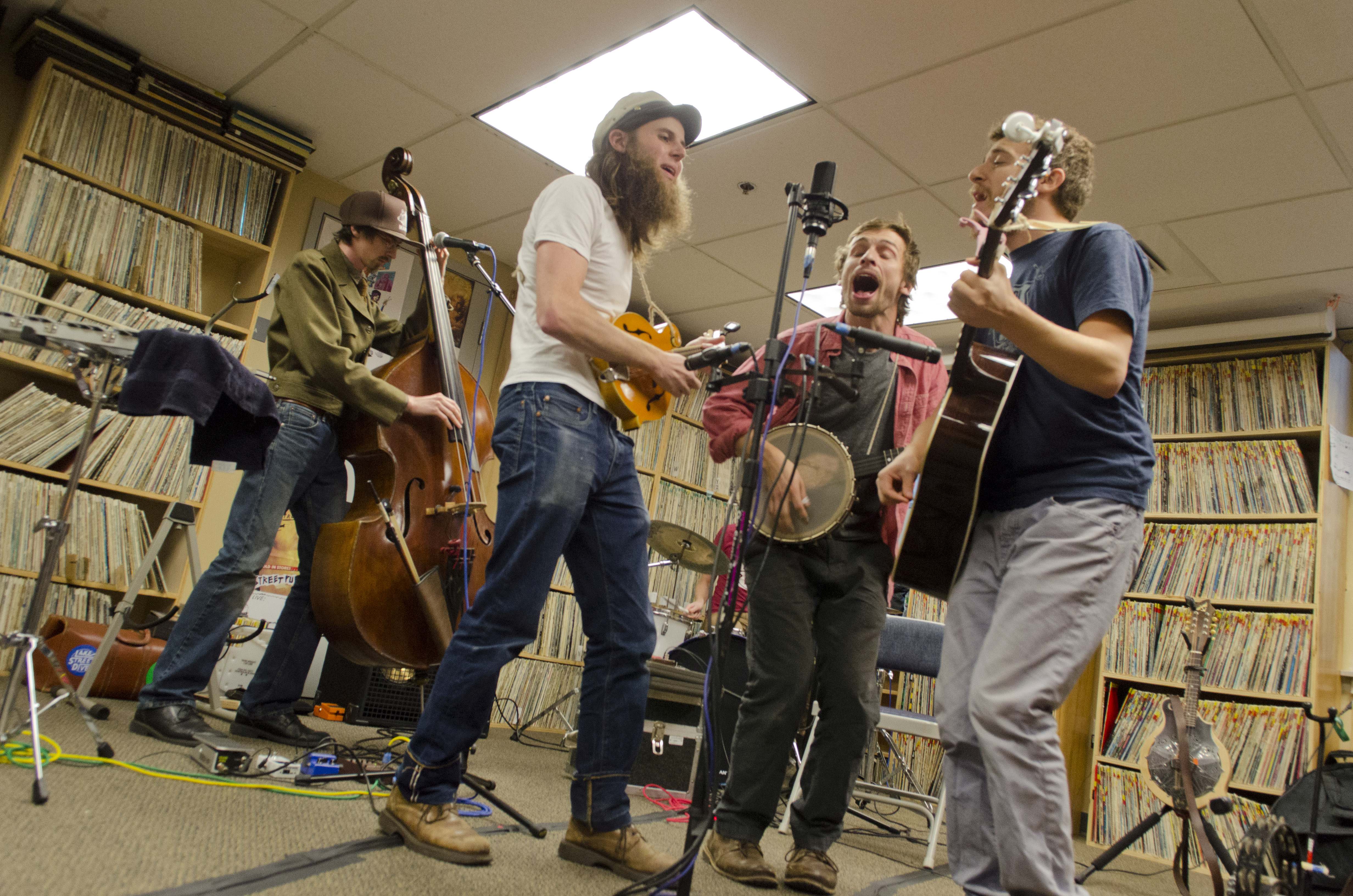
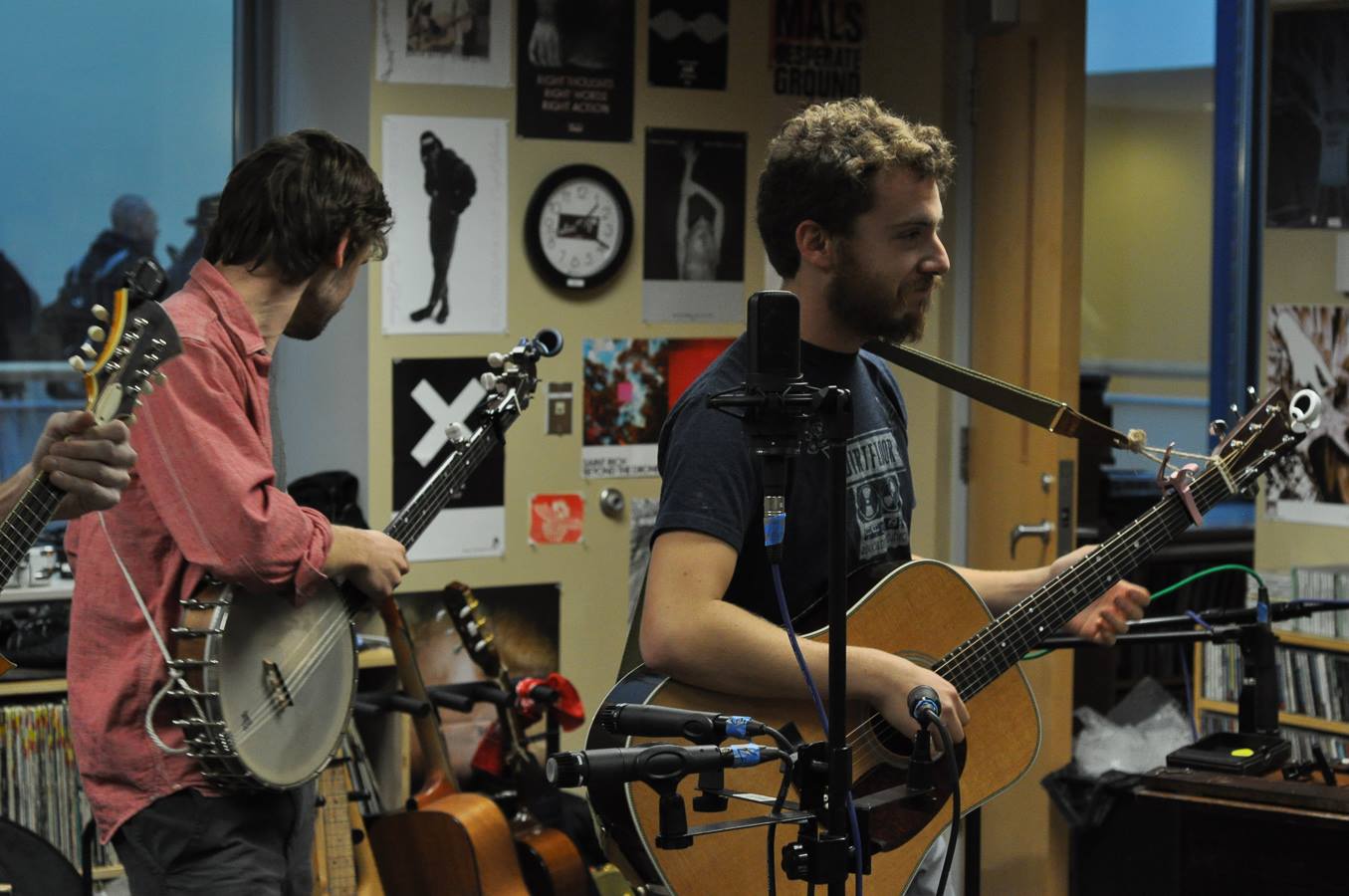
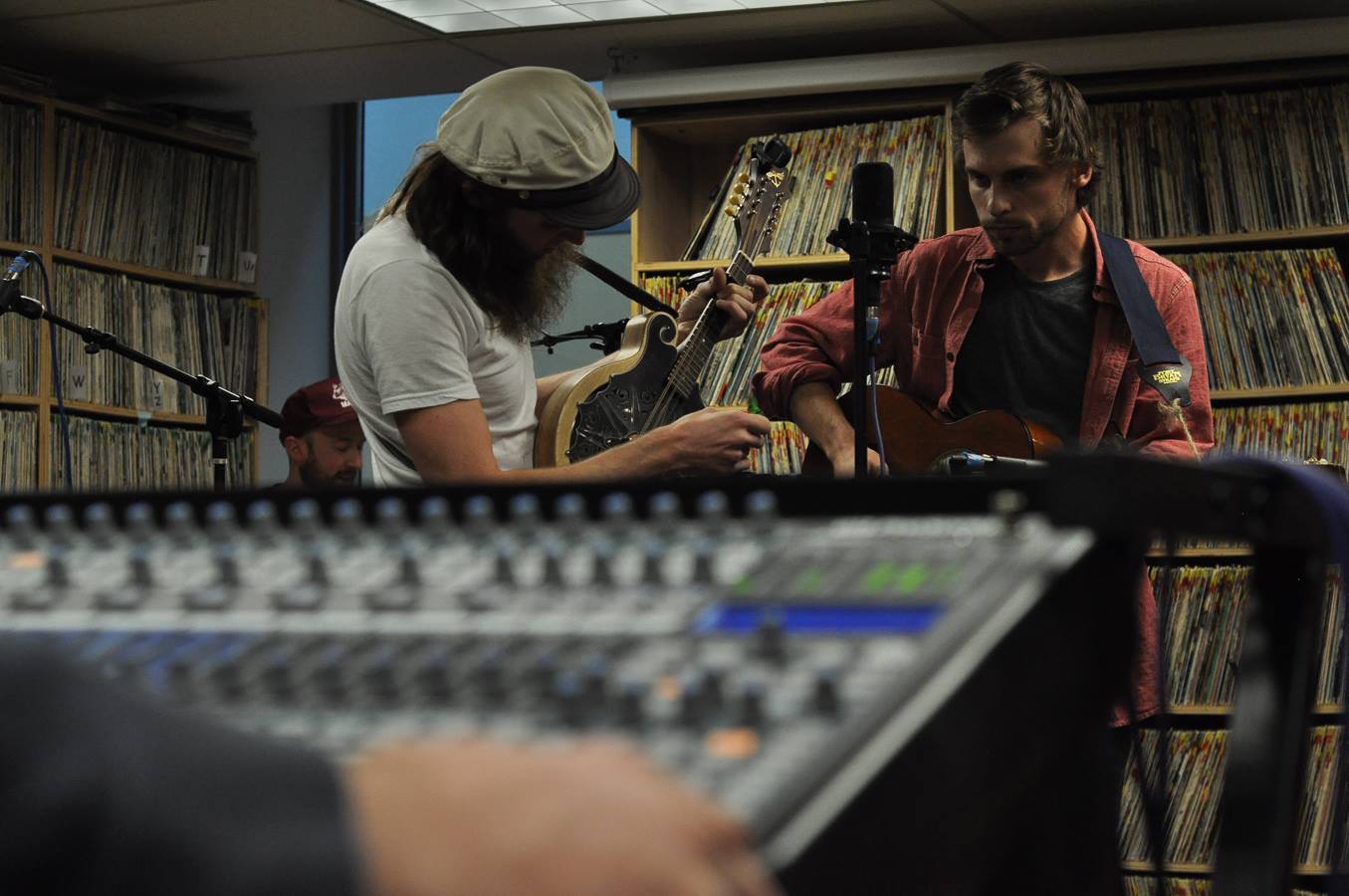
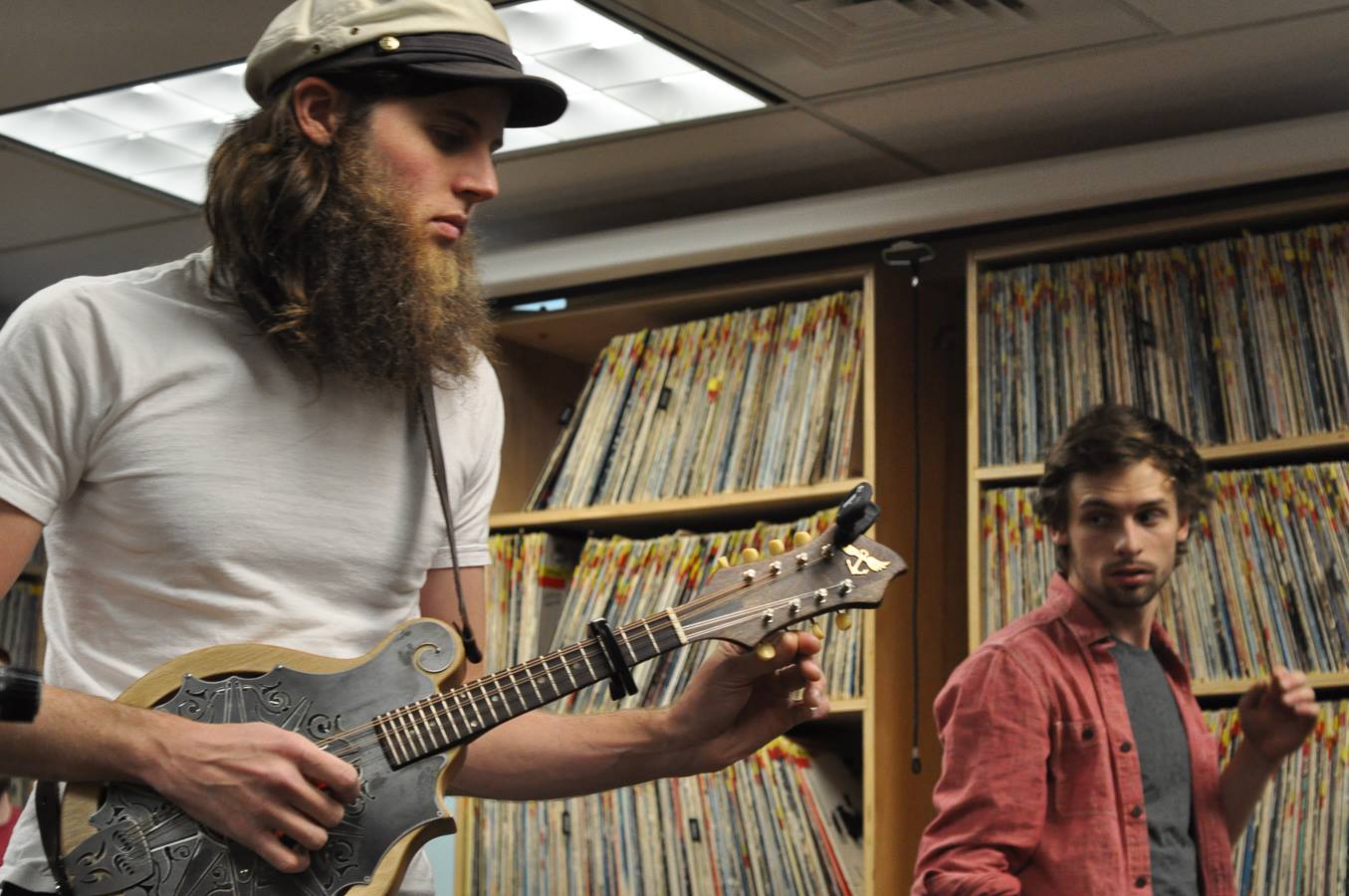
In addition to interviewing newcomers, over the years Susan has had the opportunity to meet and interview performers with well-established careers and reputations. One well-established couple was Ewan MacColl and Peggy Seeger.
“And so somehow, somehow, I got to interview them the day after an Amherst concert. And it was just very exciting to me, because these were two people who were so primal in my introduction to the music. Her husband Ewen MacColl had this wonderful, deep, rich… just this big voice,” Susan said. “And he knew all these old Scottish songs, and then they have Peggy, who came out of the American folk tradition. The combination was a really great one because they were able to show something different from each other.”
“So I got to interview them, and I got to be kind of friendly with Peggy, which was really nice. In fact, she wrote a song kind of based on my telling her the story about the house I grew up in,” Susan said.
This was after Susan had lunch with her when Peggy still lived in the States. The song is called Everything Changes. “She says this is a song I made out of your story about visiting your childhood home.”
Collapsible lyrics
The house I lived in when I was a child
Had woods . . . . we all ran wild
You could hide … then come home – after a while.
The town I lived in when I was young
Everybody knew my name
The world was my own
Out in the dark, playing games
Till mama called me home.
But that was then and now it’s now
Everything changes, somehow
The house I lived in
The town I lived in
Everything changes —-
O, you been gone so long
Memories fade
It’s dark and I’m afraid
I’m your little girl child
Your own, your very own
Mama, it’s late – time to call me home.
The house I live in – my hometown
The trees — the city cut them down
It’s all changed, you can’t hide
The house stands there, lonely and strange
I stood and cried –
The children —-their world is on a screen
They play games – alone
O – was it a dream
When mama called me home
But that was then and now it’s now
Everything changes, somehow
The house I live in
The world I live in
Everything changes – everything … everything
O, you been gone so long
Memories fade
It’s dark and I’m afraid
I’m your little girl child
Your own, your very own
Mama, it’s late – time to call me home.
I’m your little girl child – out here alone
Mama, it’s late – please call me home.
And Peggy even credits Susan with the inspiration of the song in the CD-booklet.
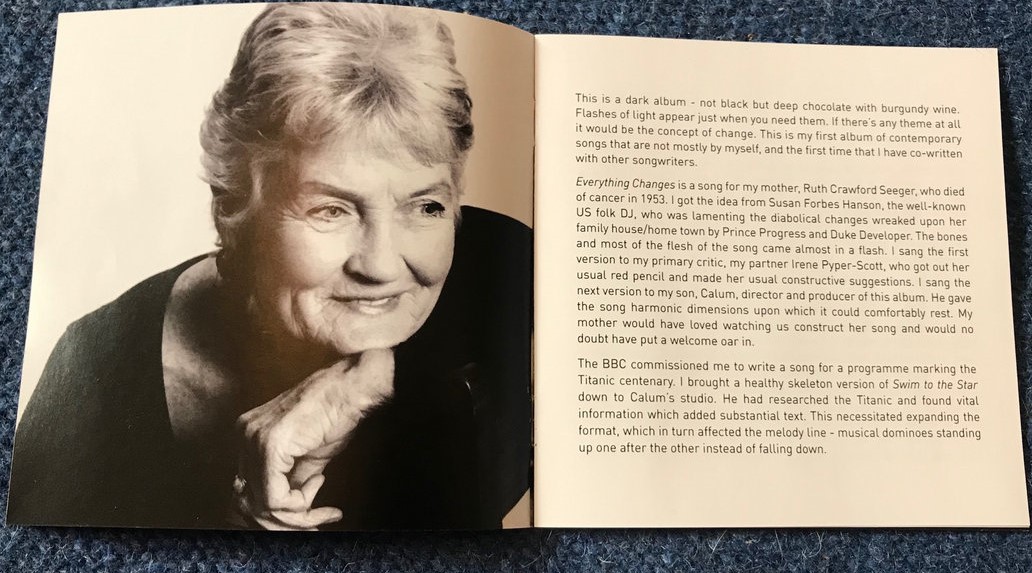
“You know, we’re just sitting at mics on opposite sides of the table. I want them to be comfortable so they’re able to concentrate on putting forth their best thoughts and their best music,” Susan said.
Susan sheds some insight into the process of bringing on and interviewing musicians. A lot of musicians come to WHUS, but specifically to Susan because it’s a comforting environment.
“You know, we’re just we’re sitting there opposite the opposite sides on at mics on opposite sides of the table. You want them to be comfortable so that they’re putting, putting forth their most their best thoughts and their best music.”
Susan’s hosted The Sunday Night Folk Festival” for 45 years as of autumn 2024. After a few years she was invited by a WHUS alum, John Montanari, to take over “Valley Folk” on WFCR in Amherst, where she did a similar show from 1985 to 2007. She also hosted “In Town” on WNPR for two years, where she interviewed artists in front of an audience.
Susan talks about continuing her show over the years.
“It’s like in the middle of summer, and nobody’s around. And you don’t hear from anybody and you think, oh god, why am I even doing this? And then the next week, you’ll have four people call and say ‘that was a great set!’ or ‘would you please play so and so you played it a while ago, and it really meant a lot to me.’ The positive responses have been many more than the negative ones. And that’s why you continue to do it.”
Sunday Night Folk Festival Promotional Merch
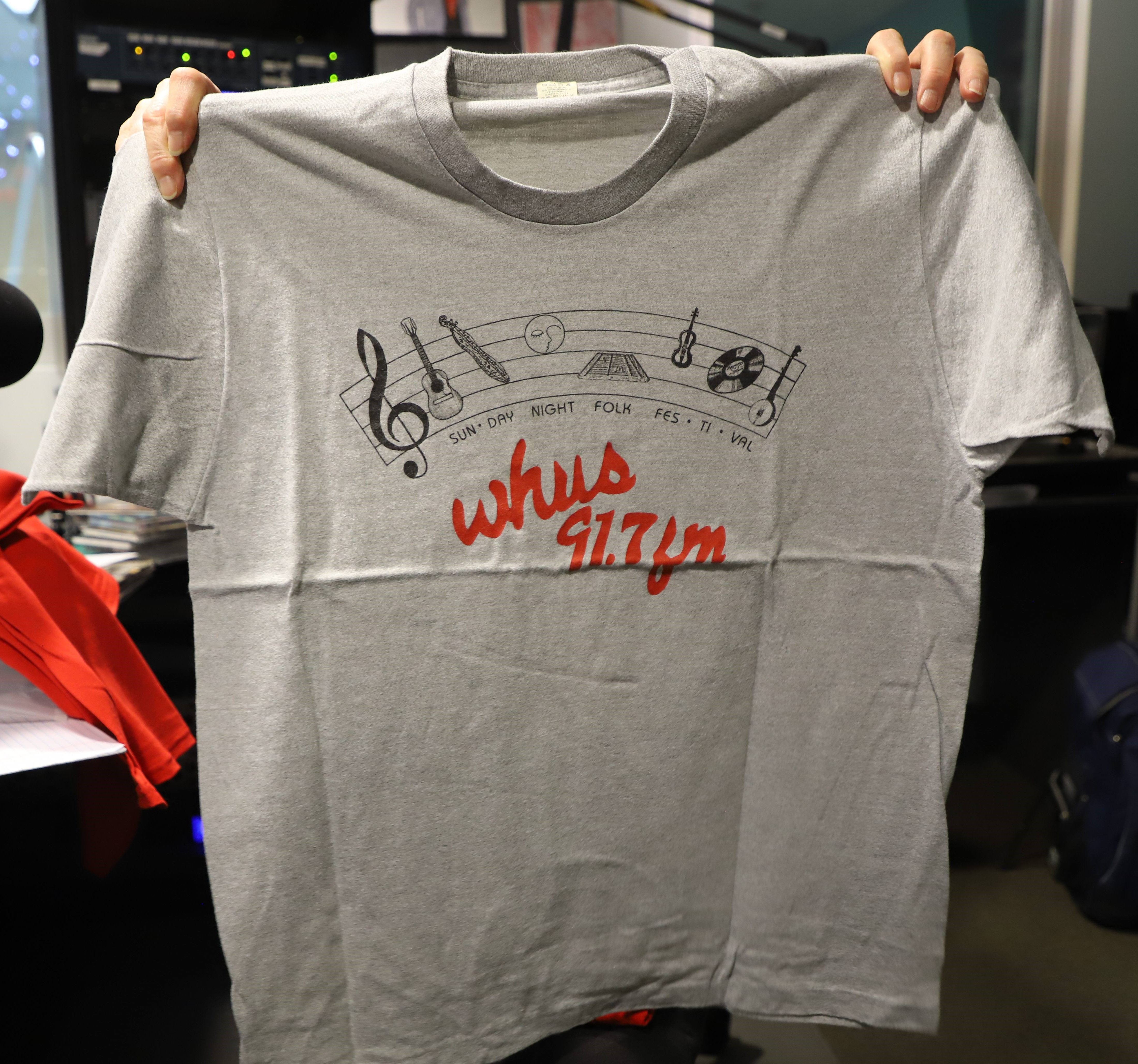
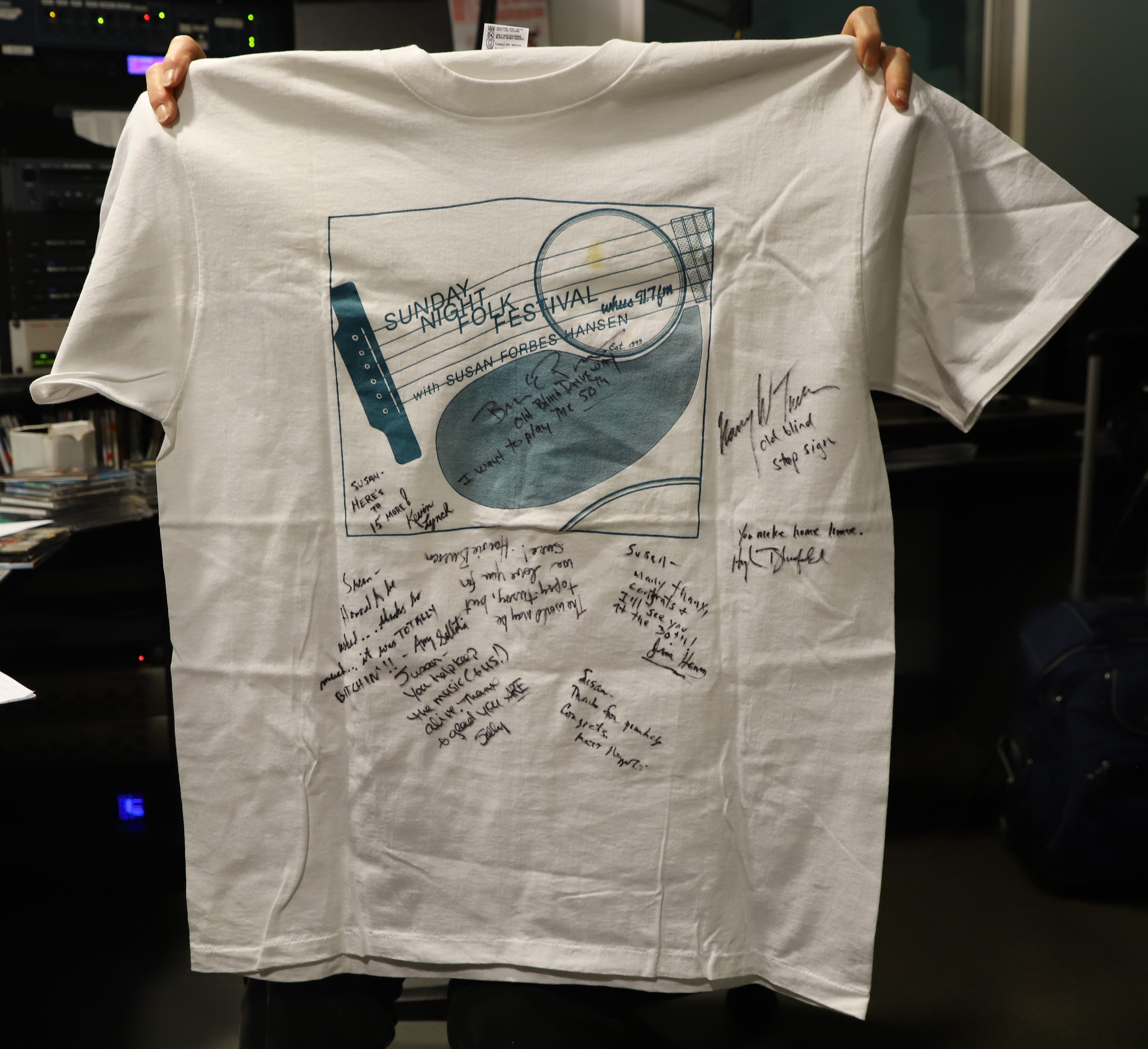
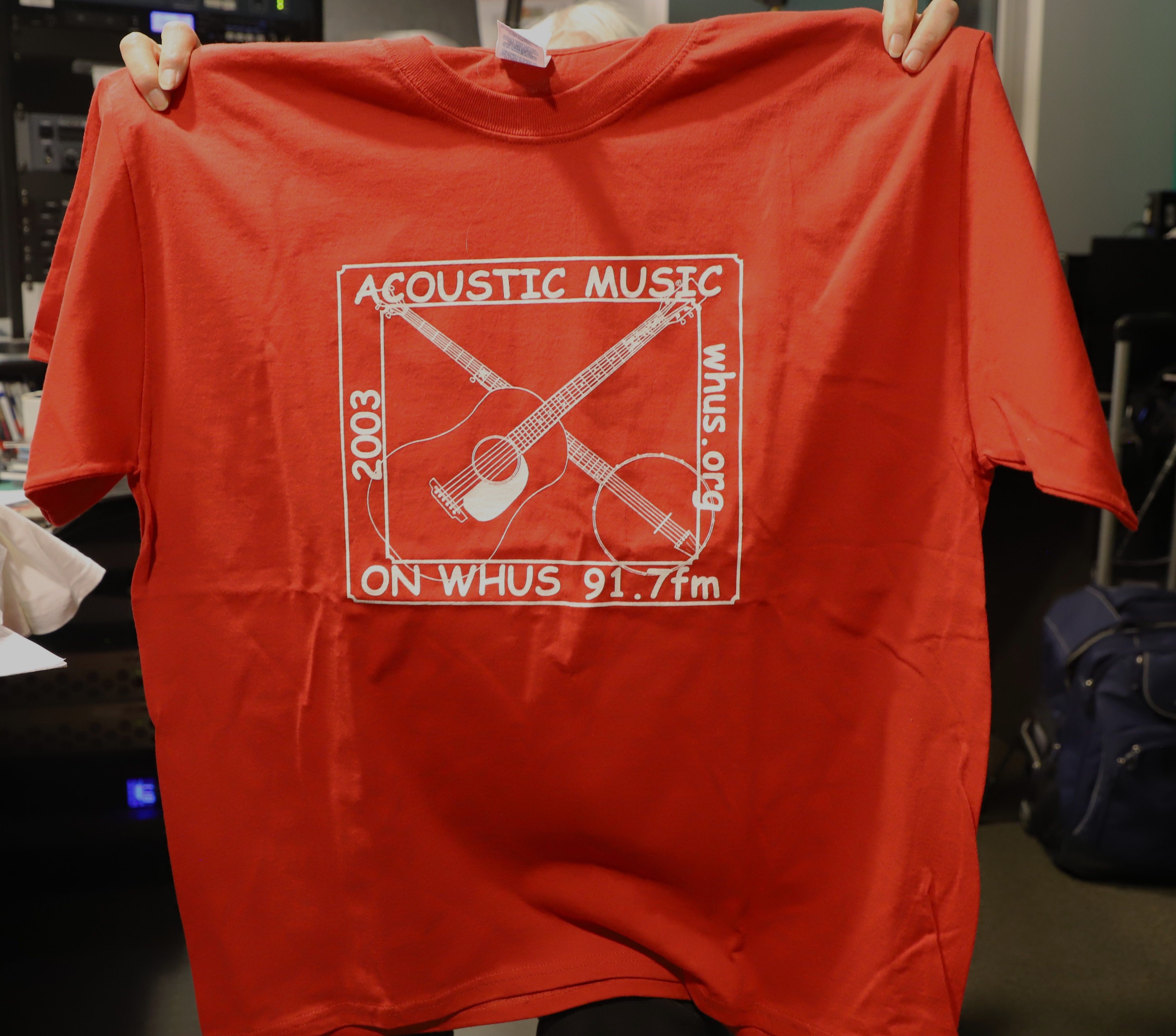
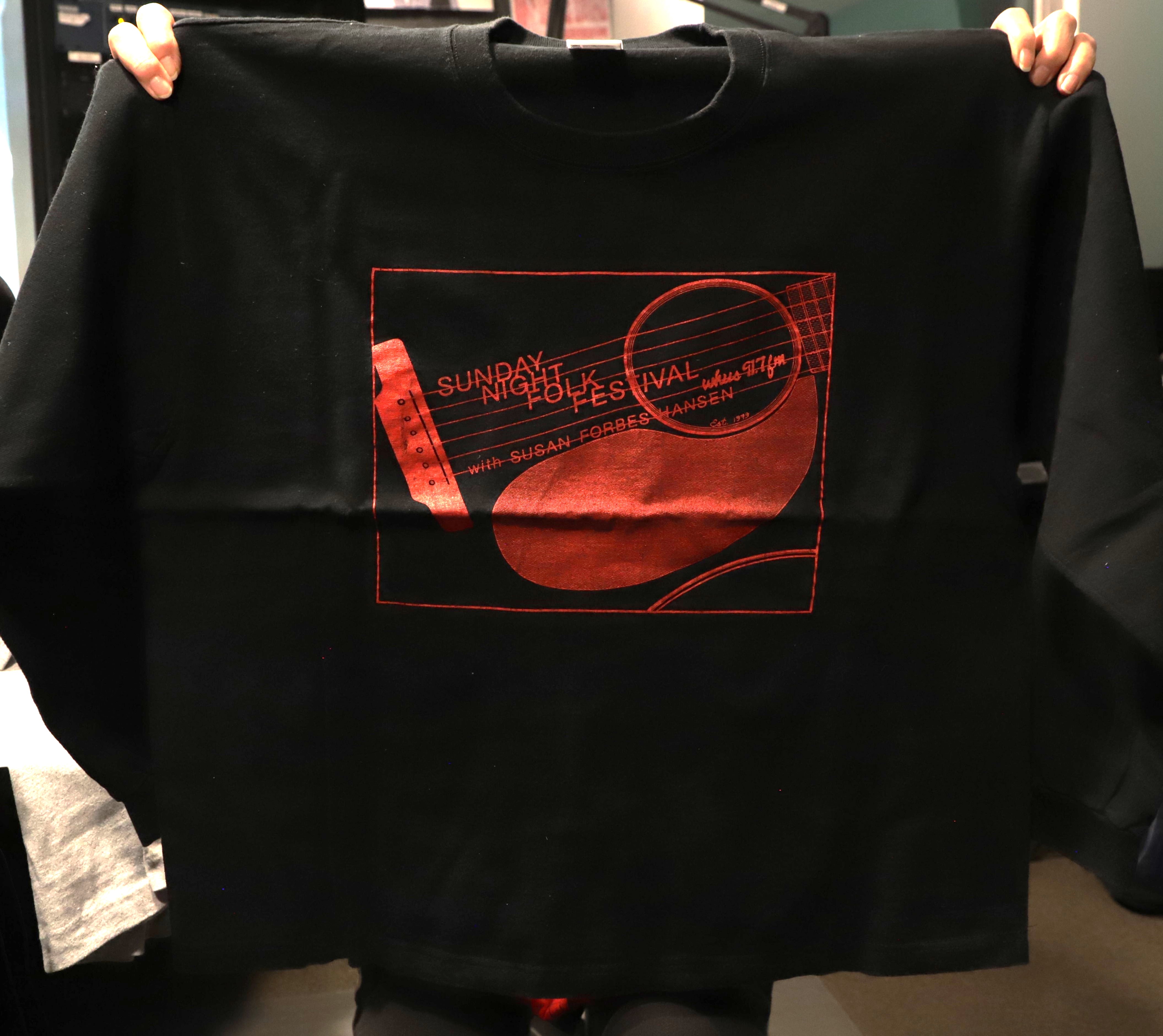
AUDIO
The below audio files are from the page as well as new ones.
